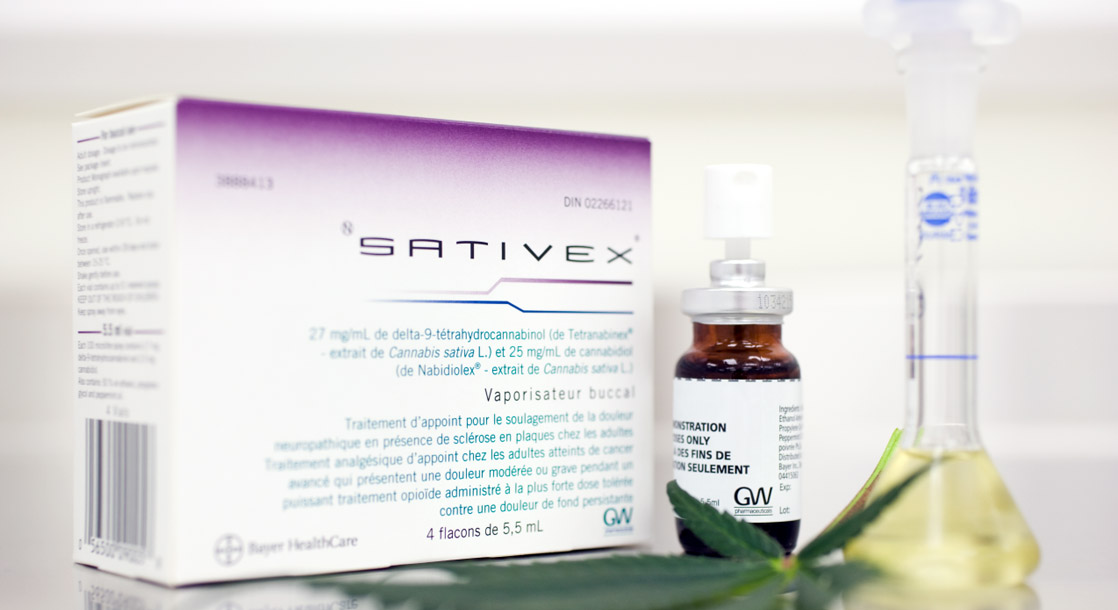Researchers from King’s College London are conducting a new research study that aims to discover if a prescription cannabis medicine can treat symptoms of dementia.
The new study, which is being funded by Alzheimer’s Research UK, will focus on Sativex, the only naturally-derived cannabis medicine available through Britain’s public healthcare system. This prescription medicine combines an equal mix of THC and CBD, which are extracted from actual cannabis plants. The researchers hypothesize that Sativex could help reduce the more extreme symptoms of dementia by balancing the body’s natural endocannabinoid system.
“We all have cannabinoids in us already which regulate our internal balance,” lead researcher Chris Albertyn explained to the Daily Express. “When we feel pain, hungry, sleepy or our mood fluctuates, those are regulated by this internal endocannabinoid system which essentially brings us back to the middle anytime that we’ve gone to an extreme. That’s the target for us because it’s implicated in all these behavioral and psychological fluctuations that we have naturally. It’s just a matter of reducing the extremes.”
An estimated 50 million people around the world are currently diagnosed with dementia, and that figure is expected to double by 2060. In addition to memory loss, this disorder can cause aggression, agitation, and even psychotic symptoms. Physicians often prescribe antipsychotic medications to dementia patients who exhibit signs of aggression and distress, but these pharmaceuticals cause extreme sedation and a host of other negative side effects.
Caregivers have discovered other alternative therapies that can effectively treat these symptoms, including group therapy, music sessions, and massage. But once the pandemic hit, many of these in-person treatments were put on hold, and doctors started upping patients’ doses of antipsychotic drugs. This unfortunate situation has left family members desperate for a natural solution to this growing problem.
Albertyn recently learned that some caregivers have already found a natural medicine that can treat these symptoms, though. “We discovered that there were some relatives in care homes that were using CBD oils, putting them into creams, drinks or tinctures, and self-experimenting to help with things like sleep, pain, and aggression,” he told the Daily Express. “It led me to dig deeper. There’s a real growing early evidence base for cannabinoid medications to be promising targets in this area.”
Although medical marijuana is technically legal in the UK, regulators have taken few steps to actually make this medicine available to the general public. Federal restrictions make it difficult for researchers, doctors, and patients to access the wide variety of medical marijuana products readily available in Canada and many individual US states. To date, the UK Home Office has only approved two cannabis-based medicines to treat a very limited range of illnesses.
Fortunately, Sativex is one of those medicines. UK health officials currently allow doctors to prescribe this medicine to patients with multiple sclerosis and other spasticity issues, and this legal status will make it easier for Albertyn’s team to conduct their study. Researchers are now recruiting 60 dementia patients living in care homes to participate in the trial, and hope to present their results by next spring.
Other researchers are also studying how cannabis could potentially help treat dementia and Alzheimer’s disease. Australian researchers are exploring whether blends of THC and CBD can treat dementia symptoms, and a more recent study has suggested that CBN could protect brain cells from aging and possibly even slow the progress of Alzheimer’s.
Cover image via











